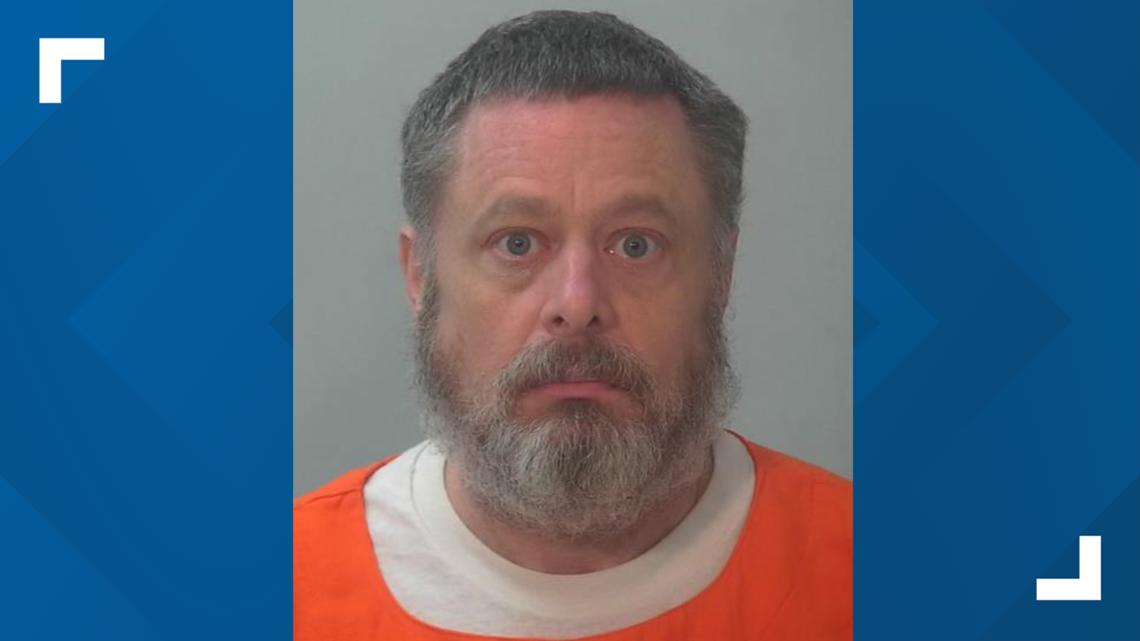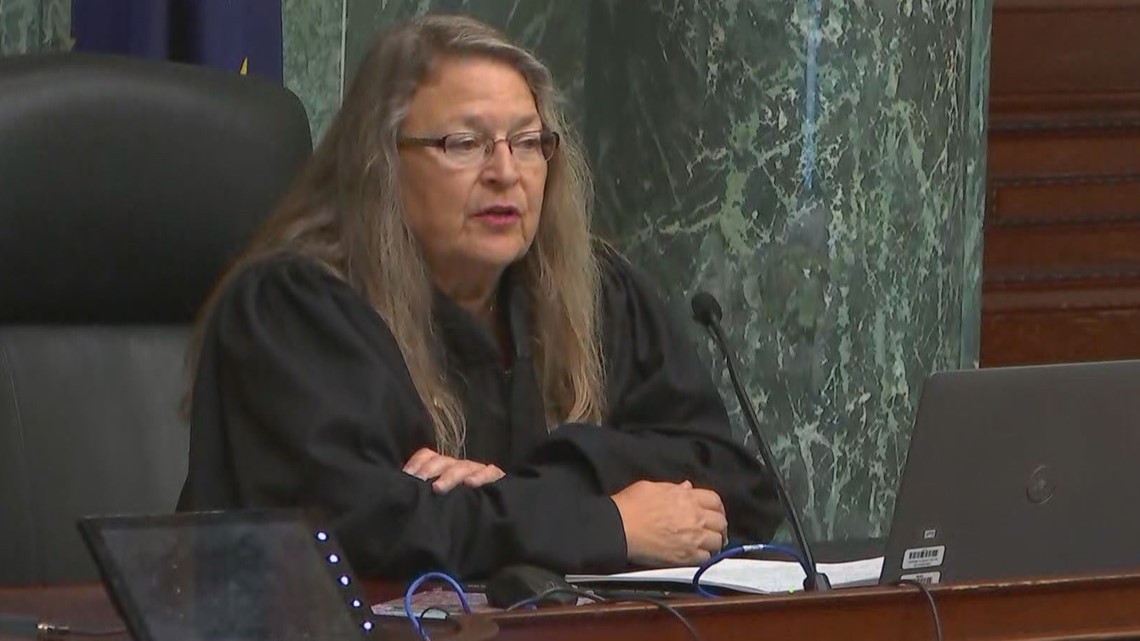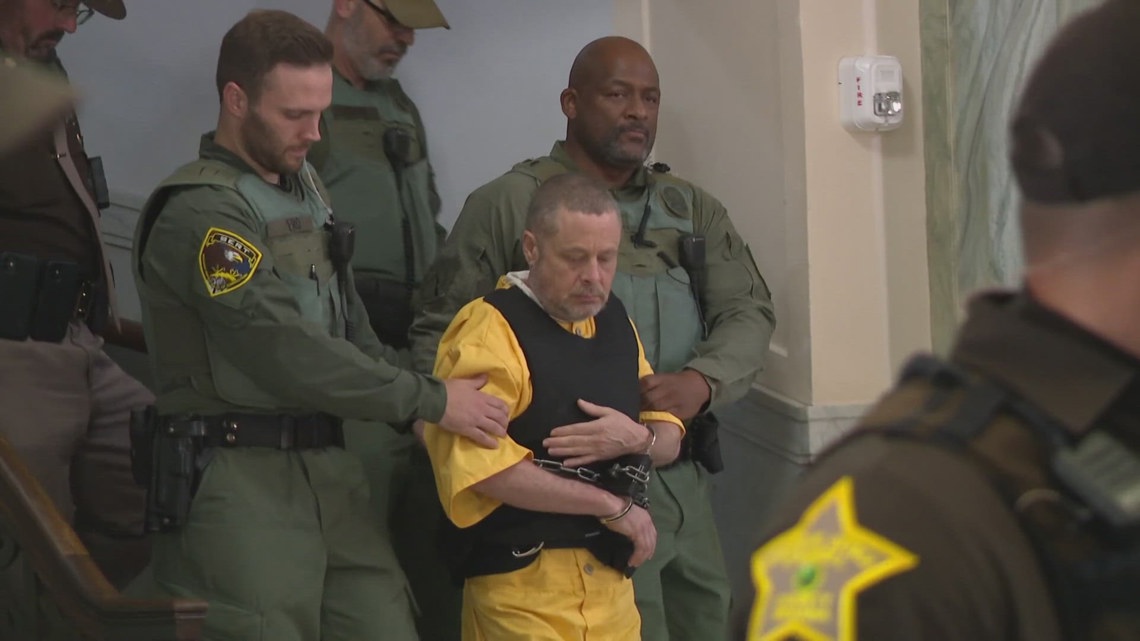ALLEN COUNTY, Ind. — At a critical hearing May 7, the trial for Delphi murders suspect Richard Allen was moved to Oct. 14 - Nov. 15, 2024. The trial had been scheduled from May 13 to May 31.
Allen is accused of the 2017 murders of Abby Williams and Libby German.
Allen is expected back in court May 21-23 in Carroll County. At that time, statements allegedly made by Allen regarding the murders will be addressed, as well as a document filed May 6 by Carroll County Prosecutor Nicholas McLeland that he said incriminates Allen.
No discussions about evidence in the case was discussed in the hearing held at the Allen County Courthouse Tuesday.
Allen's defense team said they are OK with the October trial date.
Brad Rozzi, one of Allen's attorneys, said it was not practical for the trial to take place during the dates in May, and said no end date should be set in the trial.
The defense team is asking for 15 days to present the case, and said if the judge wouldn't grant that, it would waive Allen's right to a speedy trail and allow for the later trial date.
"If you can't try this case in one month, there's something wrong," Judge Frances Gull said to Allen's lawyers, to which Rozzi responded to the judge, "You don't know anything about this case."
That was one of multiple contentious exchanges between Rozzi and Gull witnessed by 13News crews at the hearing.
Gull claimed the defense team waited until April 30 to say there was a problem with the May trial date.
In the hearing, Andrew Baldwin, another of Allen's lawyers, introduced a new motion as a second request for Gull to be disqualified in the case.
The state said it was looking at 40-45 witnesses for the trial. McLeland said he was satisfied with the May trial date.


Rozzi repeatedly said during the hearing, "We're not saying we're not ready – we're just saying we don't want you to bookend this."
At the end of the hearing, Allen's lawyers asked for housing for him, which was not discussed publicly between attorneys and Gull.
Length of trial
Allen's defense team previously warned the judge the trial could go past when it was scheduled to last.
The attorneys argued the prosecution previously said it had a witness list of 118 people and 93 exhibits. The defense argued the shear scope of all of those witnesses could last the entirety of the scheduled trial time.
The defense previously said its side of the case would take a "couple of weeks" to present and that it had more than 70 witnesses.
The defense also pointed to challenges with Allen needing to be transported to and from the courthouse each day and the same with the sequestered jurors.
This was in response to an email from Gull on April 28.
In that email, Gull said jury selection should last three days.


She said the defense attorneys were the ones who requested a speedy trial and the trial dates "is the length of the trial, not more or less."
Gull said no attorney notified the judge when the trial dates were set that they needed more time.
She also said she has tried death-penalty and life-without-parole cases with multiple victims in the past in the same allotted time.
Gull then took aim at the defense looking to identify other potential suspects, saying: "I am quite familiar with the law regarding third party perpetrators, and unless the defense can provide nexus between any alleged third party perpetrators and the charged crimes, those allegations are unsupported and will be inadmissible."
Gull went on to say the defense should be prepared to present the case in a timely way and have its witnesses available quickly. She said the defense should not time witnesses poorly and to respect the time of the jurors.
Terms, names banned for jury selection
The prosecution in the trial said it wanted certain terms banned for the defense team during jury selection.


RELATED: Prosecutor arguing Richard Allen's alleged confessions in Delphi murders should be heard at trial
Prosecutors sent the request to the judge, saying the terms or explaining the terms could be seen as an attempt to indoctrinate the jury.
The state argues hypothetical questions – including facts that are not in evidence – could mislead the jury, create prejudice or confusion.
The terms include Odinism, cult or ritualistic killing and names of people listed in court documents throughout the investigation or as witnesses.
Allen's attorneys have claimed several people with direct ties to Odinism were dismissed as potential suspects early on in the investigation into the killings without reason.
For reference, the Anti Defamation League defines Odinism in the following way:
"Odinism is a term frequently given to a racist variant of the Norse pagan religion known as Asatru. Asatru is a religious sect that attempts to revive ancient Norse religious beliefs and practices of pre-Christian Europe. Asatru is not in itself a racist religion, though some white supremacists consider themselves Asatruists. Odinism is sometimes referred to as Wotanism. It tends to be popular among white supremacist inmates."

